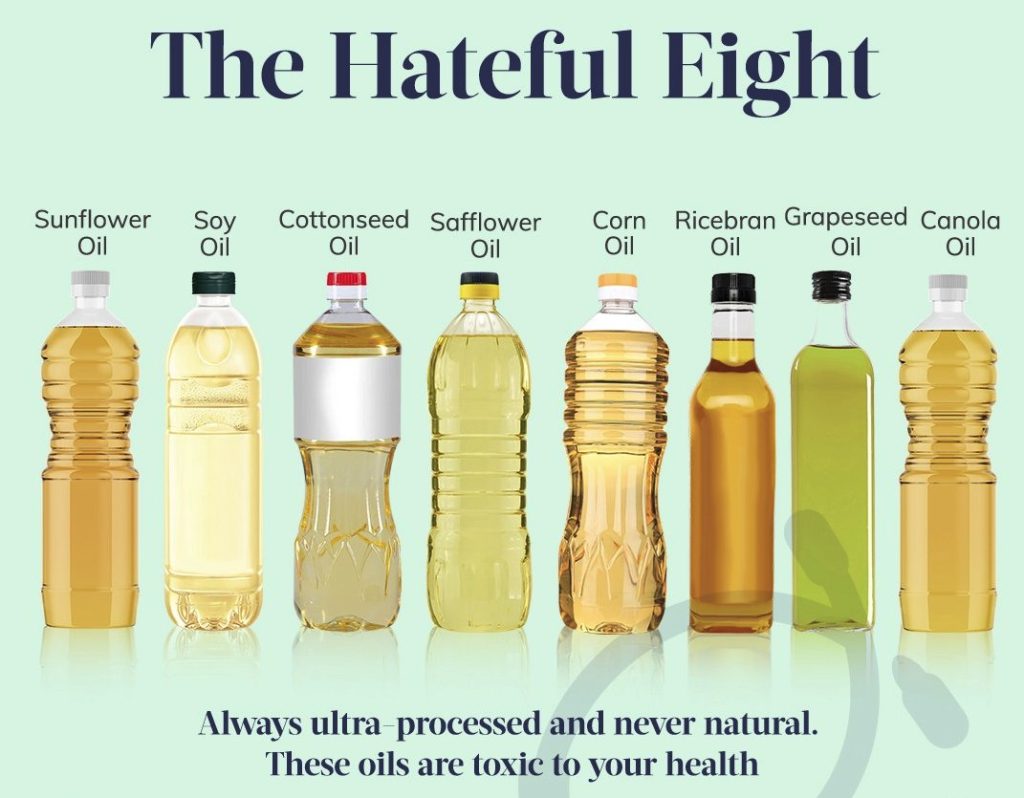In a recent video, personal trainer and nutrition coach David Wright named three of the worst foods you can eat. Let’s explore why trans fats, seed oils, and ultra-processed cereals can’t just be ignored—and how to replace them with healthier alternatives.
1. Trans Fats: Avoid 100%
Trans fats, created by hydrogenating oils, are notorious for harming cardiovascular and metabolic health. These fats raise LDL (“bad”) cholesterol, lower HDL (“good”) cholesterol, and promote inflammation and insulin resistance. The Mayo Clinic warns that trans fats increase the risk of heart disease, stroke, and type 2 diabetes.
According to the Harvard T.H. Chan School of Public Health, even small amounts of trans fat can increase your risk of coronary heart disease significantly.
Tip: Never eat anything with “partially hydrogenated oils” on the label—this is trans fat in disguise.
2. Seed & Vegetable Oils: Linoleic Acid Overload
Common seed oils—such as soybean, corn, cottonseed, and sunflower—are high in linoleic acid, an omega-6 fatty acid. While necessary in small amounts, excessive omega-6 consumption has been linked to inflammation and may contribute to metabolic dysfunction.
A 2022 review in the journal *Nutrients* found that excess linoleic acid may impair mitochondrial function and promote oxidative stress, especially when consumed in the form of industrial seed oils found in fried foods and packaged snacks.
Tip: Use olive oil, avocado oil, or butter for cooking. These are more stable and promote healthier fat balance.

Image Credit: 417 Integrative Medicine
3. Ultra-Processed Cereals & Packaged Foods
Many popular cereals marketed as “healthy” are loaded with added sugars, artificial colors, and preservatives. These ultra-processed foods are designed for taste, not nutrition—and they are easy to overeat.
In a randomized trial by the NIH, people consuming ultra-processed foods ate about 500 more calories per day and gained weight compared to those eating minimally processed foods, despite identical macronutrient targets (NIH Study).
A BMJ review also linked high consumption of ultra-processed foods with increased obesity, type 2 diabetes, and cardiovascular risk.
Tip: Choose whole-food breakfasts like oats, eggs, fruit, and unsweetened yogurt. Read labels and avoid products with long, unrecognisable ingredient lists or artificial dyes.
How to Start: One Change at a Time
Rather than overhauling your entire diet overnight, start with one change. Here’s a step-by-step approach to build momentum:
- Week 1: Eliminate trans fats by avoiding packaged baked goods and fried fast food.
- Week 3: Switch from seed oils to olive or avocado oil for cooking.
- Week 5: Replace sugary cereals with whole oats, eggs, or fresh fruit.
Each new habit lays the foundation for the next—turning healthy eating into a sustainable lifestyle, not a temporary fix.
FAQ
Can I still eat whole grains or homemade bread?
Absolutely. Freshly made sourdough or whole-grain bread with minimal ingredients is far healthier than packaged commercial loaves with preservatives and industrial oils.
Is it okay to eat processed foods in moderation?
Yes—but moderation is the key. Make minimally processed, whole foods your baseline, and treat ultra-processed snacks as occasional indulgences.
Disclaimer: This content is for educational purposes and does not replace personalised medical advice.
Video Summary
For more evidence-based nutrition and fitness tips, subscribe to our channel:
https://www.youtube.com/@Vitality-and-Wellness
Looking for extra help with your fitness goals? Check out the personalised Nutrition Program at Parkway Athletic Club:
parkwayathleticclub.com/nutrition



